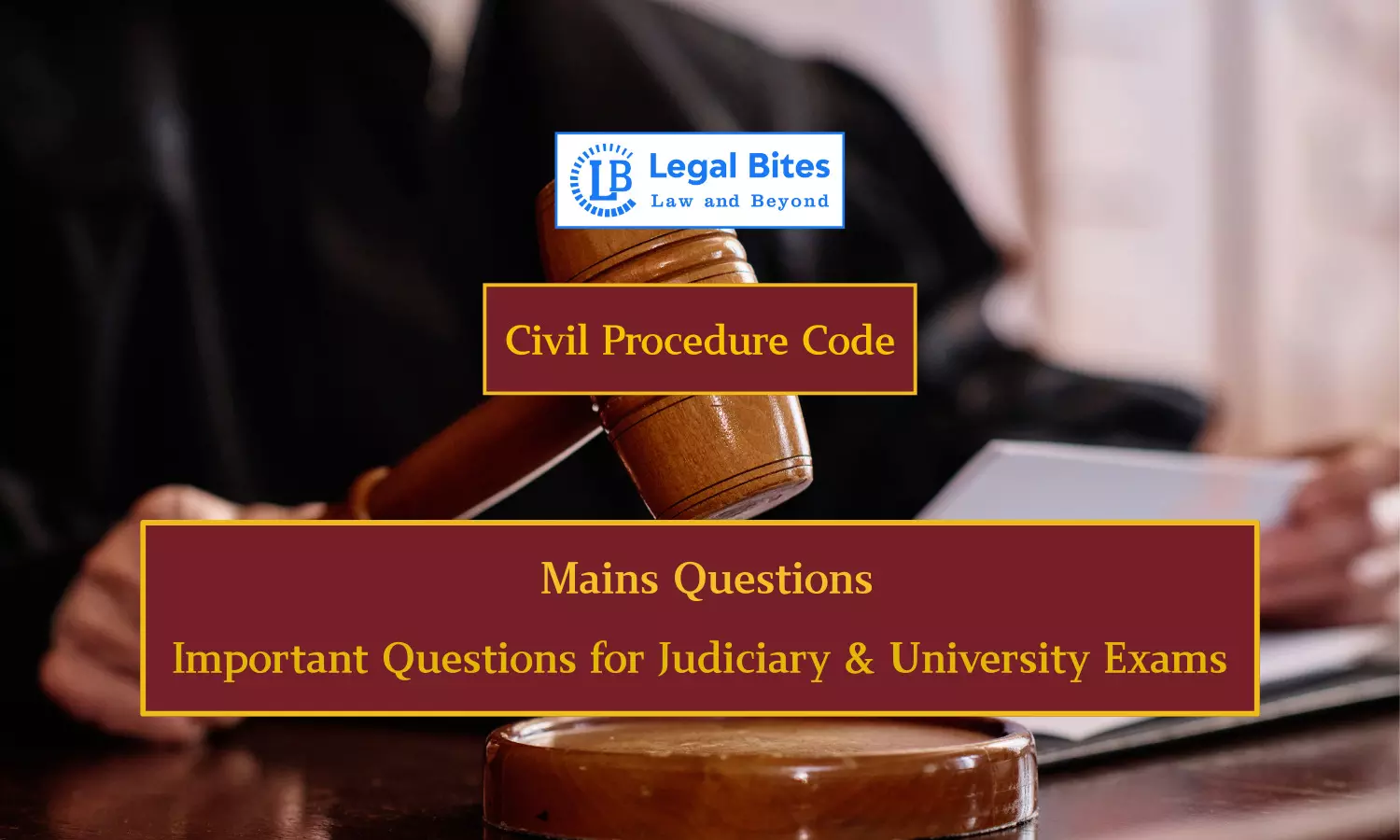Is there any presumption regarding a foreign judgment?
Find the answer to the mains question only on Legal Bites.

Question: Is there any presumption regarding a foreign judgment? [OJS 2019]Find the answer to the mains question only on Legal Bites. [Is there any presumption regarding a foreign judgment?]AnswerAs per Section 2(5) of the CPC, a foreign court means a court situated outside India and not established or continued by the Central Government. A foreign judgment, defined under Section 2(6), is a judgment pronounced by such a foreign court.The conclusiveness of foreign judgments in India is...
Question: Is there any presumption regarding a foreign judgment? [OJS 2019]
Find the answer to the mains question only on Legal Bites. [Is there any presumption regarding a foreign judgment?]
Answer
As per Section 2(5) of the CPC, a foreign court means a court situated outside India and not established or continued by the Central Government. A foreign judgment, defined under Section 2(6), is a judgment pronounced by such a foreign court.
The conclusiveness of foreign judgments in India is governed by Section 13 of the CPC. A foreign judgment is considered conclusive and binding between the parties if it does not fall within any of the following six exceptions:
- It was not delivered by a court of competent jurisdiction;
- It was not decided on the merits;
- It is founded on an incorrect view of international law or a refusal to recognize Indian law;
- It violates the principles of natural justice;
- It was obtained by fraud;
- It sustains a claim founded on a breach of Indian law.
If none of these exceptions apply, the foreign judgment operates as res judicata in India.
The presumption regarding foreign judgments is addressed in Section 14 of the CPC. It states that the Indian court shall presume the competence and regularity of a foreign judgment upon production of a certified copy. However, this is a rebuttable presumption, and the opposing party can disprove it by establishing, for example, that the foreign court lacked jurisdiction.
In the landmark case Satya v. Teja Singh, (1975) 1 SCC 120, the Supreme Court clarified that a foreign judgment would not be conclusive if it lacked jurisdiction under Indian standards. The Court held that the presumption under Section 14 is subject to challenge on valid grounds, such as fraud or want of jurisdiction.
Thus, while a certified foreign judgment carries a presumption of validity under Section 14 CPC, this presumption is not absolute and can be rebutted under the exceptions laid out in Section 13.
Important Mains Questions Series for Judiciary, APO & University Exams
- CPC Mains Questions Series: Important Questions Part – I of X
- CPC Mains Questions Series: Important Questions Part – II of X
- CPC Mains Questions Series: Important Questions Part – III of X
- CPC Mains Questions Series: Important Questions Part – IV of X
- CPC Mains Questions Series: Important Questions Part – V of X
- CPC Mains Questions Series: Important Questions Part – VI of X
- CPC Mains Questions Series: Important Questions Part – VII of X
- CPC Mains Questions Series: Important Questions Part – VIII of X
- CPC Mains Questions Series: Important Questions Part – IX of X
- CPC Mains Questions Series: Important Questions Part – X of X

Mayank Shekhar
Mayank is an alumnus of the prestigious Faculty of Law, Delhi University. Under his leadership, Legal Bites has been researching and developing resources through blogging, educational resources, competitions, and seminars.
